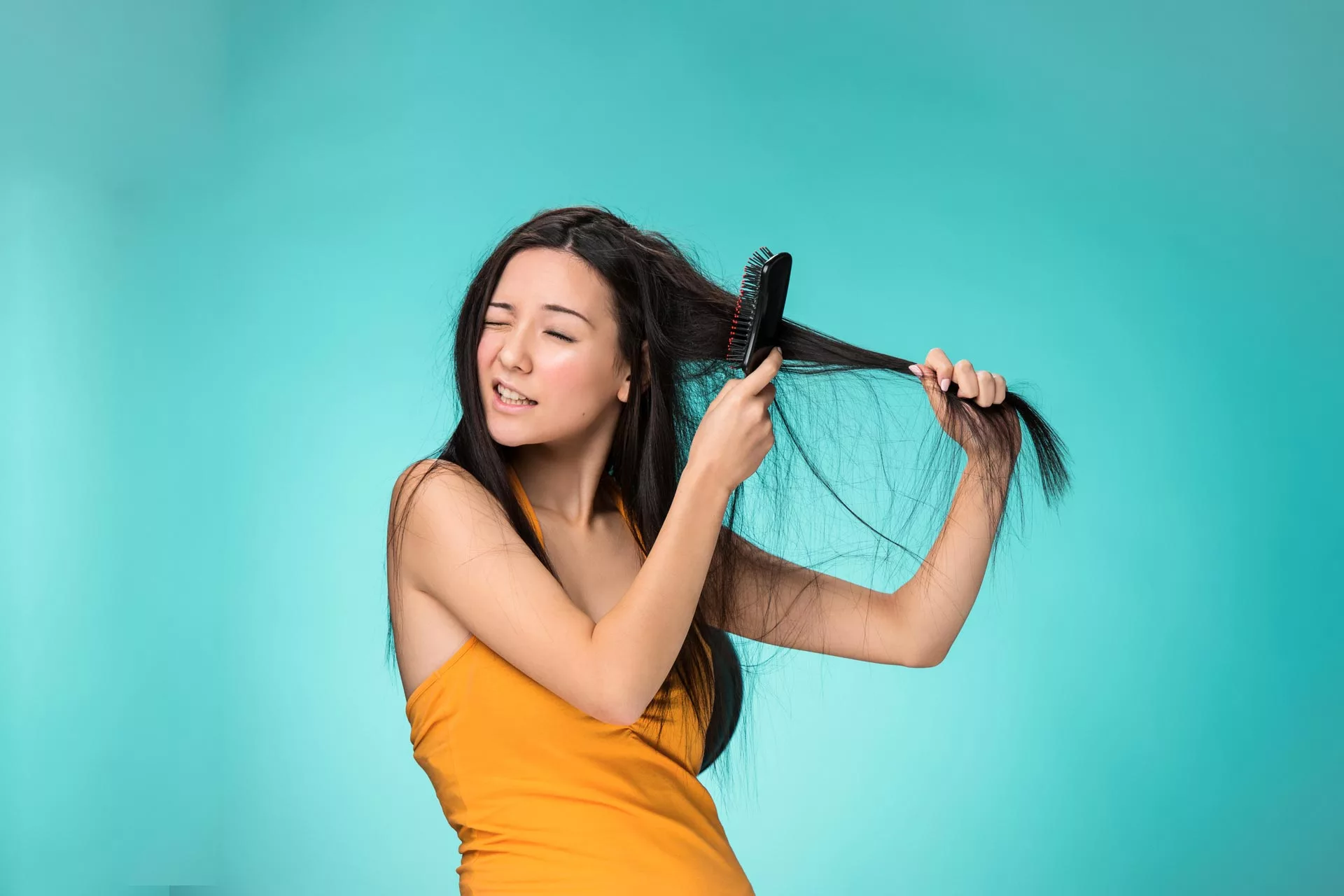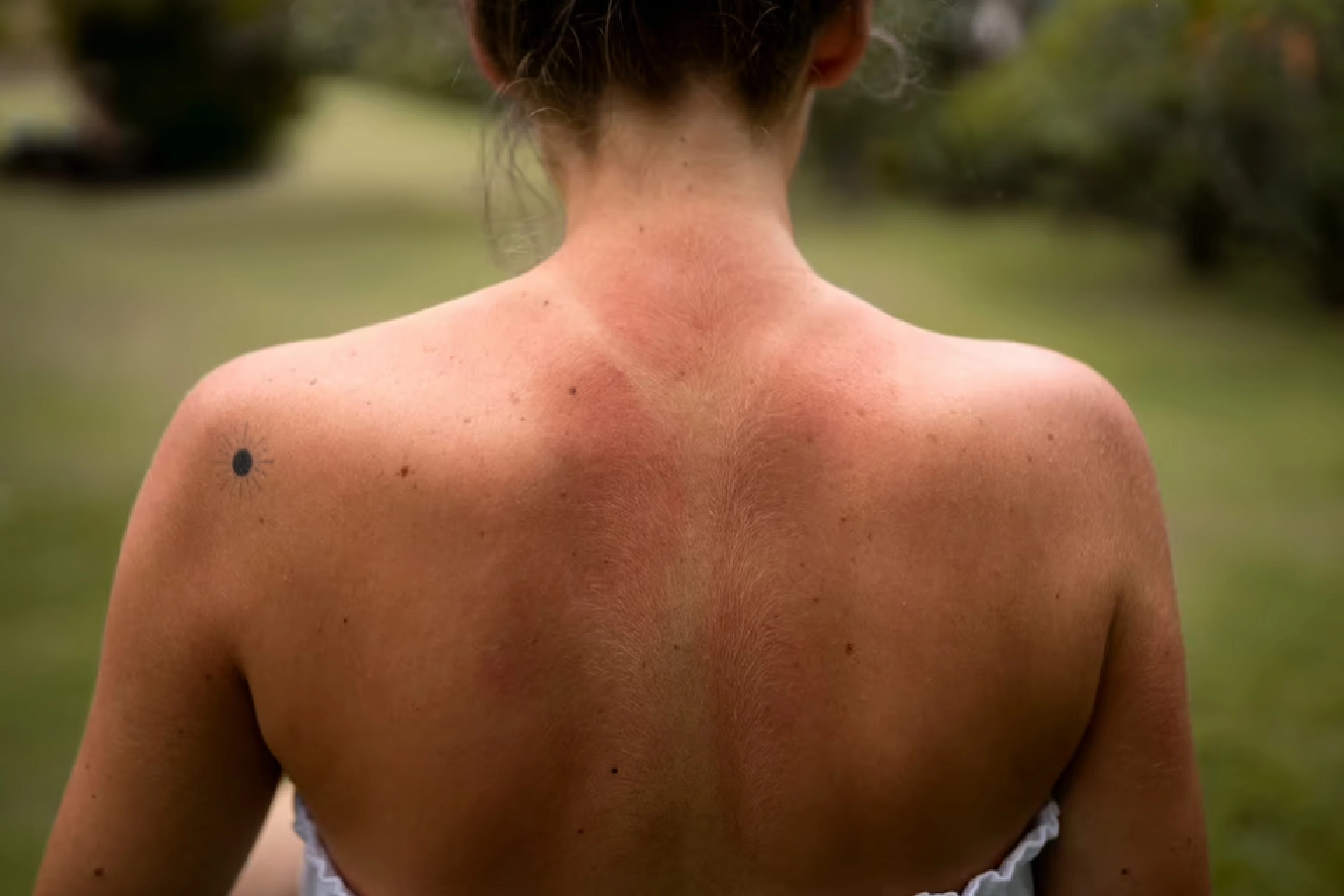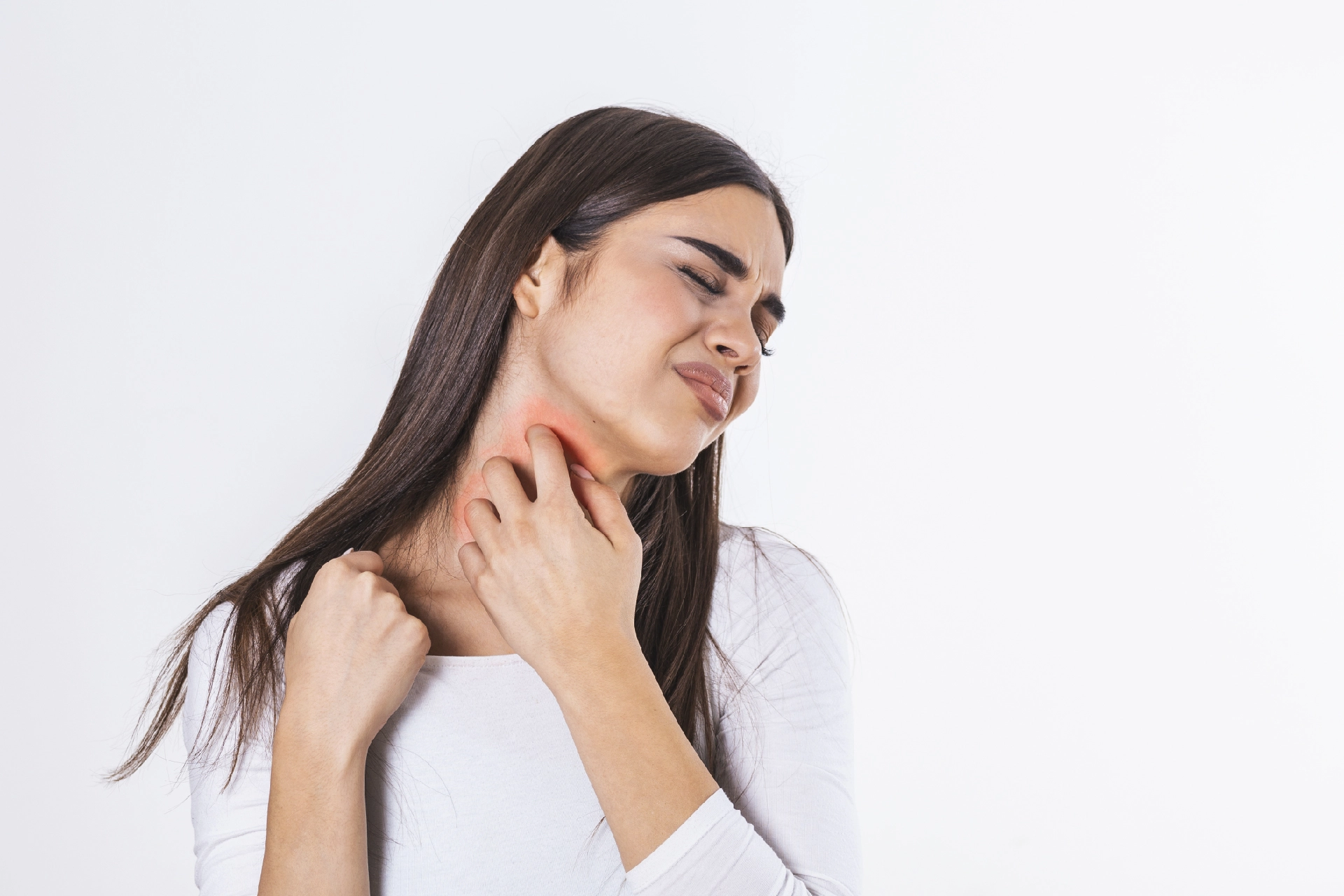Physical Medicine and Rehabilitation | 6 min read
Tips To Reduce Hair Fall In Autumn Season
Medically reviewed by
Table of Content
Synopsis
Hair fall in autumn is typical. Many individuals notice an increase in hair loss when the weather changes, particularly during the fall rains. Hair fall in autumn season may be corrected and even avoided simply by including a few simple habits into your everyday routine.
Key Takeaways
- Hair fall in autumn season is something everyone experiences. It is completely natural
- Hair fall in autumn is due to the body letting go of the extra protection offered by the hair from UV rays in summer
- With a few simple changes to your seasonal hair loss is fixable and preventable
As autumn approaches, there's a chill in the air, and the leaves slowly fall from the trees. Our hair, much like the trees, goes through a similar experience, where hair fall in the autumn season appears to increase. But don't worry. Hair fall in autumn season is fairly common. In the late fall and winter months, people may notice greater shedding. Seasonal hair loss is something that virtually everyone experiences, and there is usually no cause for concern.
Why Does Hair Loss Increase In The Autumn?
Hair follicles have a regular growth cycle. The life cycle of hair is divided into three separate stages - anagen, catagen, and telogen - in which hair growth is retained, regressed, and finally falls. About 90% of the hair follicles will be in the anagen phase or growing stage at any given point in time, and 10% will be in the resting or the telogen phase. To create room for fresh growth, persons in this period of their cycle shed their fully grown hair. The average individual sheds between 50 and 100 hairs every day, most of which go undetected. It's generally only noticeable when you brush your hair, and a few strands may end up on your pillow or towel.
When fall hits, this loss becomes much more pronounced. What is the reason behind this? In order to protect ourselves from UV radiation, we tend to hang onto more hair in the summer. Seasonal hair loss has been scientifically proven to be an evolutionary remnant from the requirement of additional hair during the hot summer months to shield the scalp from UV radiation. When the temperature cools and the sun becomes less harsh in the autumn, all of that protection isn't needed as much, which is why hair sheds in the fall. Furthermore, a lack of light alters hormones, which has a direct influence on hair development.
How To Reduce Hair Fall In Autumn Season
While hair fall in the autumn season is normal, it is nonetheless a source of anxiety among the general population. Losing hair at four times the typical pace may seem like it will radically alter your appearance, but your hair cycle normally returns to normal before it becomes noticeable to anybody other than you.
You might not be willing to wait for your hair to repair itself. However, nourishing your hair throughout seasonal shedding can assist in ensuring that after the six weeks of fall hair loss are complete, your hair will be stronger than ever. Fortunately, you may reduce excessive shedding in the autumn by incorporating a few basic behaviors into your daily routine.
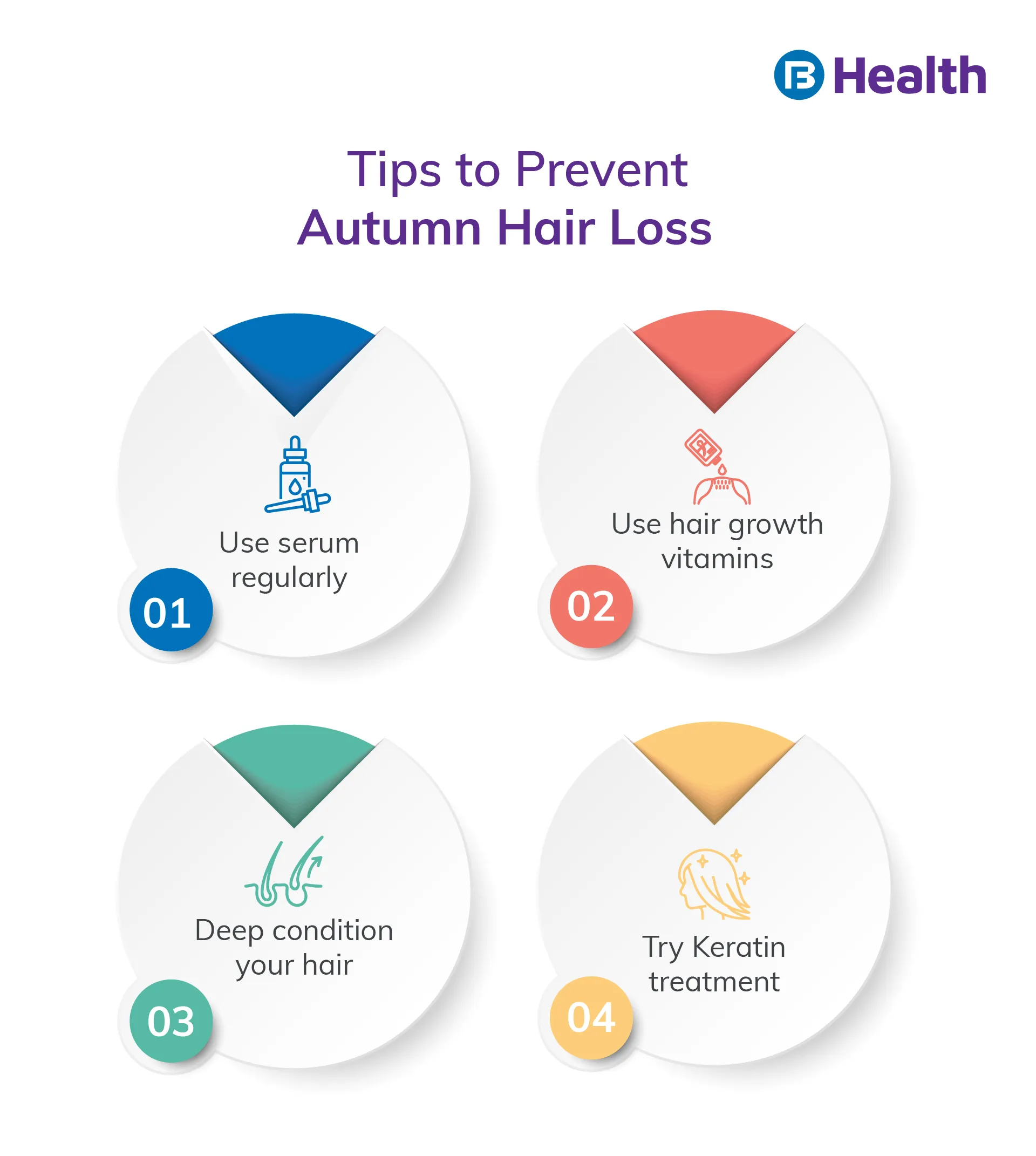
Here are some hair care tips during the monsoon to help you reduce seasonal shedding:
Serums for Voluminous Hair and Scalp Treatment
Because they stimulate your follicles, volumizing hair and scalp serums are excellent for making your hair appear thicker and healthier. Hair serums with water- or oil-based solutions give hydration, protection, and styling advantages to the scalp or hair strands while remaining weightless. Hair loss serums promote a better scalp microbiota and hair follicle, which increases the number of hair fibers produced by each follicle. Good hair serum should include critical vitamins, minerals, and essential oils to boost your hair's appearance and make you feel great. Hair serums are soft enough to use every day or a few times a week, depending on the formula. Scalp serums can also help with issues such as buildup, inflammation, and dandruff.
Deep Conditioning
During the lovely summer months, most people don't even need to think about deep conditioning treatments [1]. However, in the fall, a deep conditioning program and your everyday conditioner may truly add thickness to your hair, especially if you believe that shedding is detracting from your appearance.
A good deep conditioner enters your hair follicles and hydrates them. Moisturized hair is less prone to fall; thus, it can help reduce shedding during the dry autumn months. Make sure you use the proper sort of conditioner for your hair and stick to your schedule.
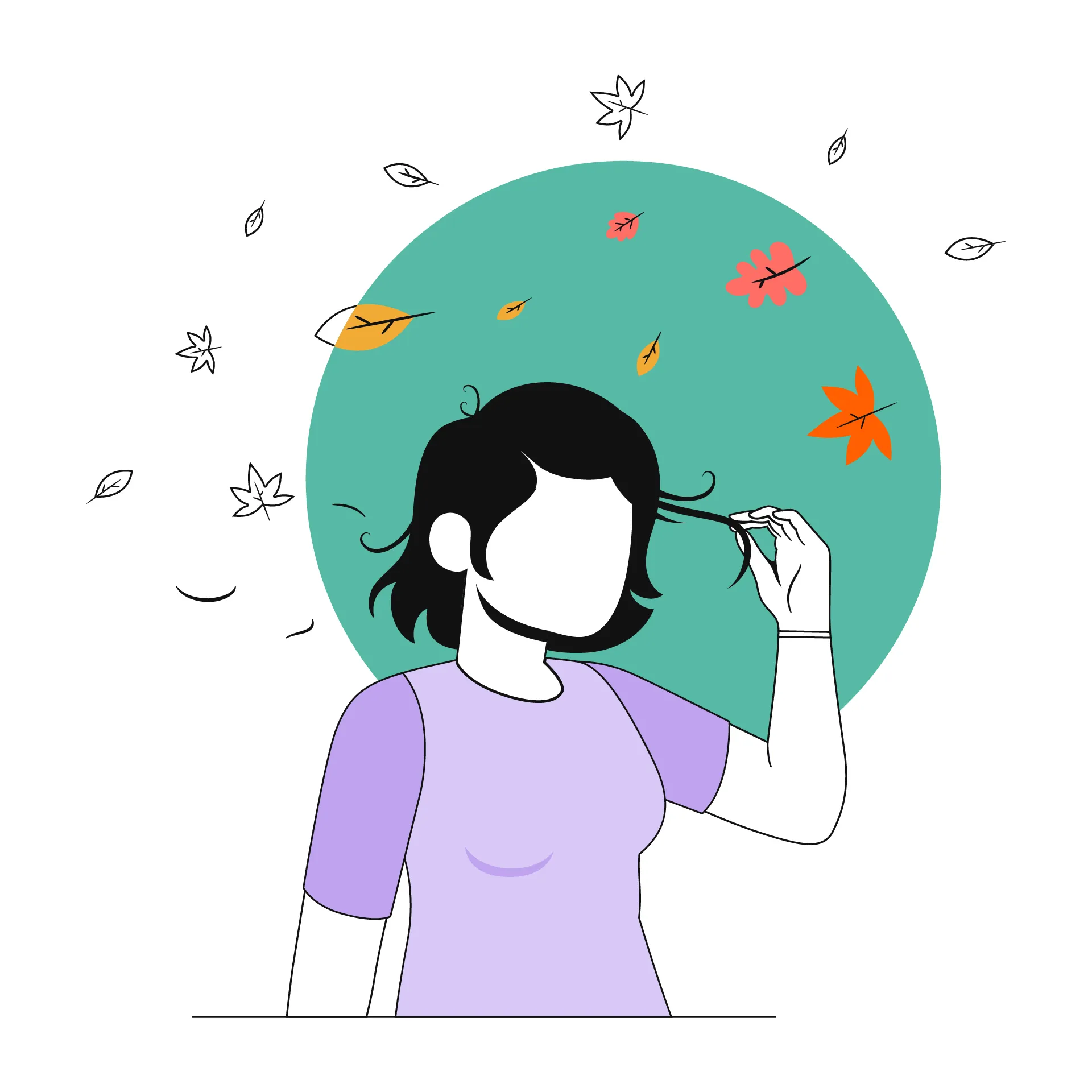
Vitamins for Hair Growth
Maintaining an appropriate hair development diet can be difficult, especially when you feel like you're fighting a losing battle during the months of seasonal shedding. Including a hair development vitamin guarantees that you're nourishing your hair follicles from within and that you're getting the right amount. Vitamins and minerals are essential in maintaining a proper hair cycle, particularly in replacing the matrix cells of the hair bulb, which divide fast. Sufficient quantities must reach the scalp in order to feed it and promote optimal hair development. Dietary supplements comprising B vitamins, zinc, iron, sulfur amino acids, and selenium can be an effective supplemental therapy for seasonal hair loss during changes in season. Maintaining a steady vitamin regimen will encourage the growth of thicker, healthier hair.
Treatment with Keratin
Keratin is a protein that is naturally occurring in the human body. Keratin in your hair is what keeps it strong and healthy. Extra keratin derived from animal products such as wool and chicken feathers is commonly used in keratin treatments for hair. This treatment may produce hair that appears healthier and smoother. Professional keratin treatments can last up to six months, depending on how you care for your hair after the initial treatment. Keratin hair treatment will help to strengthen your hair and make it less prone to breakages, resulting in a more voluminous look.
Additional read: Hair care tips for monsoon
Exfoliation Of The Scalp
Ingrown hairs can also form on your scalp, which can be painful and make your hair appear thinner. Scalp exfoliation is a common ingrown hair treatment that entails the use of manual or chemical exfoliants to remove oil, dead skin cells, and dandruff [2] from the scalp. Many hair experts believe that exfoliating the scalp on a regular basis is the key to healthier hair. Although hair is formed of dead skin cells, which is why getting a haircut doesn't hurt, the scalp is a live part of your skin. It, like the rest of your body, requires care and maintenance. Exfoliation must be done no more than twice a week.
Using The Right Products For Your Hair
Each individual is unique, and so is their hair. You will probably get a different outcome when you use the same hair product as someone with a comparable hair texture. It is essential to utilize hair products that are appropriate for your hair type. The right product will depend on your hair texture, porosity, shape, and scalp. Products that work well for one type of curly hair may harm another, and understanding your hair type will help you select how much shampoo to use and how much heat to use. Learning about your hair type is beneficial not only in the autumn but can help you rectify your hair issues year-round.
If you are unsure whether a product is suitable for you, get advice from a dermatologist.
Additional read: Greasy HairHair loss in the autumn season is normal, but minor tweaks in your hair care regimen can help lessen the environmental impacts on your hair. Following these hair care tips during the monsoon can ensure that your hair is thick, lustrous, and healthy. It is critical to be patient because these remedies take time to show results. If you continue to have excessive hair loss, you might visit a staff of skilled dermatologists at Bajaj Finserv Health. Book an online doctor consultation on the website today!
References
- https://www.stylecraze.com/articles/deep-conditioning-for-hair-at-home/
- https://www.medicalnewstoday.com/articles/152844
Disclaimer
Please note that this article is solely meant for informational purposes and Bajaj Finserv Health Limited (“BFHL”) does not shoulder any responsibility of the views/advice/information expressed/given by the writer/reviewer/originator. This article should not be considered as a substitute for any medical advice, diagnosis or treatment. Always consult with your trusted physician/qualified healthcare professional to evaluate your medical condition. The above article has been reviewed by a qualified doctor and BFHL is not responsible for any damages for any information or services provided by any third party.
